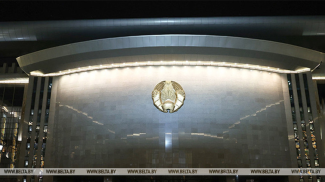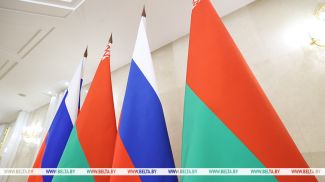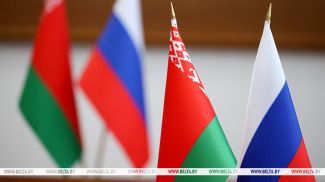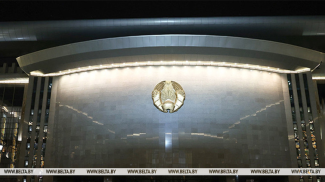MINSK, 17 November (BelTA) – On 17 November Belarusian President Aleksandr Lukashenko and Germany's acting Chancellor Angela Merkel held another telephone conversation, as agreed earlier, BelTA learned from the press service of the Belarusian leader.
"The conversation was about the situation on the border of Belarus with the countries of the European Union. Having discussed the refugee problem in detail, the parties came to a certain understanding of how to act and to move on in solving the existing issues. The Belarusian president and Germany's acting chancellor agreed that the problem will be addressed at the level of Belarus and the EU, and that the two sides will designate officials who will immediately enter into negotiations in order to resolve the existing problems. The desire of refugees to get to Germany will be addressed in the same context," the press service said.
Germany's acting chancellor also communicated to the Belarusian president the request of President of the European Commission Ursula von der Leyen to involve in the process the international organizations dealing with the problems of refugees and migrants, which are already actively cooperating with the Belarusian side.
Aleksandr Lukashenko and Angela Merkel agreed to keep in touch.
As BelTA reported earlier, Belarusian President Aleksandr Lukashenko and Germany's acting Chancellor has the first telephone conversation in the evening on 15 November. It lasted 50 minutes. The following day the Belarusian head of state disclosed some details of the conversation.
The parties discussed the refugees and the escalation of the situation at the state border. “We have reached common ground that no one needs escalation - neither the European Union, nor Belarus. We cannot allow things to escalate into heated confrontation, no matter how much someone may want it.,” the Belaursian leader said.
The influx of refugees was the second issue that Aleksandr Lukashenko and Angela Merkel discussed over the phone. “Of course, the European Union and Belarus have different views on the matter. They are very much concerned about the inflow of refugees to Belarus,” the Belarusian leader said. “But they are absolutely unaware however that it is not us who have invited the refugees here. They are unaware that as of today we sent back some 5,000 people in the autumn. We do not collect refugees all over the world and do not bring them to Belarus, as Poland claims.”
The third issue was the refugee camp. “The problem, as I told Angela Merkel, is that if we fail to save these people, it will be on us, on Belarus and, more so, on the European Union that did not let these refugees in. Something has to be done about these people immediately,” the president said. “In this regard I made a proposal to resolve the situation. I will not specify it now. We agreed with Angela Merkel that we will not talk about it right now. She has asked for some pause to discuss this proposal with the EU members.”
Another issue discussed with Angela Merkel was humanitarian aid for the refugees. The head of state explained why this issue was raised: "Germany, Merkel and the entire European Union have been misled by Poland who claimed that the refugees do not receive humanitarian aid, and that Belarus allegedly blocks the delivery of humanitarian aid to these refugees. Poland claimed it wanted to help but Belarus does not let it. To which I remarked: “I cannot imagine what problems Poland could possibly have with the delivery of humanitarian aid?” “If you want to remove the barbed wire, we do not mind. Remove it and come right up to the refugees. There are no obstacles here and there can be none. These are just lies, fake news,” said the president.
Moreover, Belarus has shown maximum openness in the current situation: various media, including foreign ones, work freely on the borderline, and representatives of international organizations have access to refugees.
Contacts to resolve the migration crisis are maintained at other levels. On 16 November, Belarusian Minister of Foreign Affairs o Vladimir Makei had another telephone conversation with EU High Representative for Foreign Affairs and Security Policy, Vice-President of the European Commission Josep Borrell.













